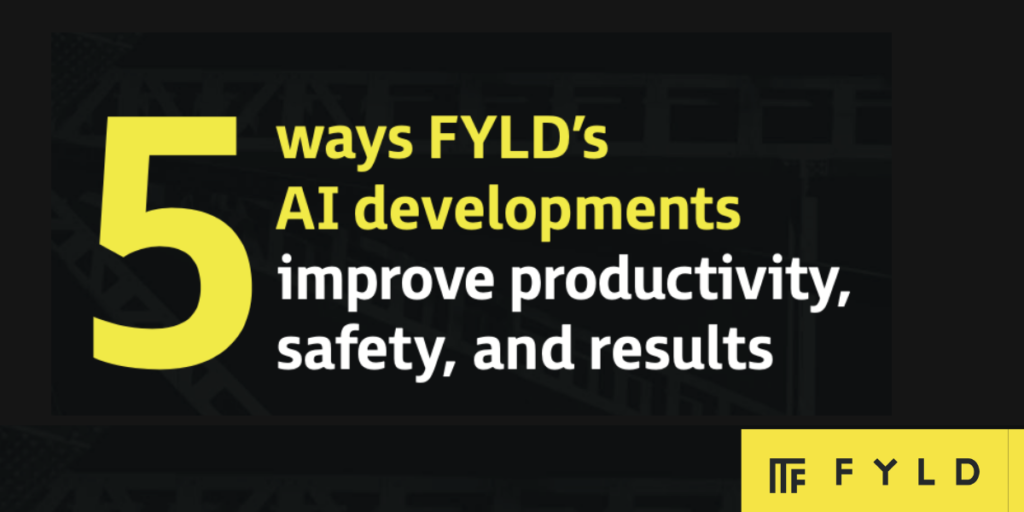5 ways FYLD’s artificial intelligence developments improve productivity, safety and results
Artificial intelligence (AI) technologies are becoming increasingly present in our everyday lives, benefiting industries and communities worldwide.
At FYLD, we harness the power of our AI platform to benefit fieldforce operations. What we are most known for is our groundbreaking AI driven point-of-work risk assessment, during which our platform predicts hazards and prompts suitable control measures based on a vast back catalogue of all previous risk assessments captured using FYLD. The world of safety knows nothing like it.
What smart infrastructure operators realise however is that while FYLD’s technology keeps their people safe in the field, it also materially improves productivity and efficiency. Observational data such as video, voice notes and photos are collected seamlessly in the field, enabling in day interventions to ensure operations are safely delivered, as well process redesign led by data.
Here are five ways FYLD’s Artificial Intelligence developments are set to grow and develop – improving productivity, safety, and performance for fieldworkers.

- Learning from the past
FYLD has been at thousands of job sites. It will use the past performance of jobs to identify the skills required for a particular task and which workers have those skills. This will help managers plan the most appropriate team for each job, thus optimising the performance of the field force operations.
2. Early warning system for predicted job blockers
Fieldworker productivity could improve further if job blockers could be identified in advance, enabling managers to resolve issues before they cause a delay. FYLD’s AI models will be expanded to learn the conditions that lead to job blockers and will warn users about potential delays.
3. Be on the front foot with systemic blockers
Common job blockers represent systemic issues that regularly delay fieldwork jobs. These could include lack of availability of traffic control equipment, or delays in permits. We are using AI to analyse these common job blockers and enable managers to solve systemic issues. This is enabling a step change in productivity for all their field force operations.
4. Supervise, smarter
FYLD’s customers are already benefiting from our Smarter Supervision, where our unique remote site visibility is enabling virtual command centres. We are now using AI to make suggestions to remote managers on which job they should focus on next, so they can stop sampling random jobs, and know their next best action to safely deliver the days operations.
5. Keeping customers updated on job duration and progress
Customer service is an important performance metric for utility companies. Having predictable outages for services goes a long way towards setting customer’s minds at ease and maintaining good customer relations. AI models can learn from historical data about field jobs to create accurate predictions of the duration of an activity. This information will be invaluable for planning and scheduling work and would also provide a base for performance management of field teams relative to their work.
To learn more about FYLD’s Artificial Intelligence developments and bespoke solutions, click here.






